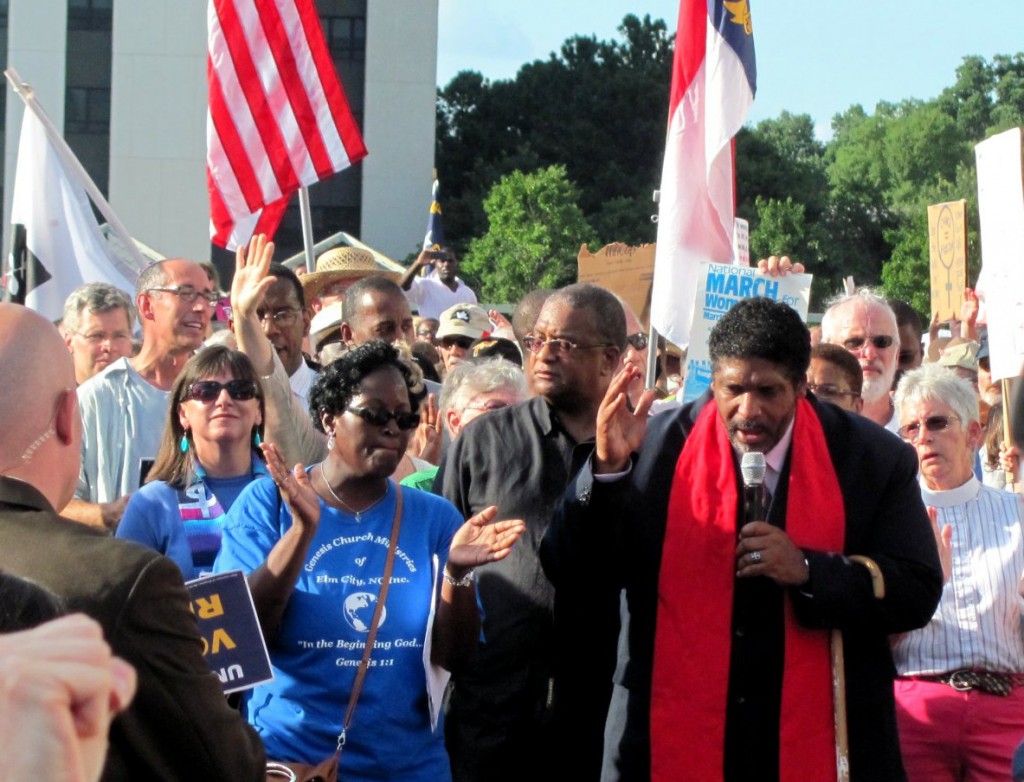Rev. Dr. William J. Barber, II, is a civil rights leader and minister in North Carolina. Following the killings in Charleston, and the removal of the Confederate Flag, he has published a meditation on the need for prophetic pastoral counseling to address racism in America.
Barber notes that as a nation we seem incapable of doing the right thing until a tragedy occurs, and criticizes statements from South Carolina suggesting that the removal of the Confederate Flag makes up for the mass-murder of men and women at Emanuel Church in Charleston.
Barber explores the racism inherent in the removal of the flag, noting that it only occurred when the people hurt by racism demonstrated subservience in the eyes of lawmakers.
From the essay:
The assassinations at Emanuel A.M.E. Church, followed by the public forgiveness from the grieving families, were similarly cited by several South Carolina lawmakers as their reason for voting to remove the flag. What they are really saying is that Black Deaths Matter, not our lives. Black people in the US are only deemed worthy of action in their death, not in their life. In a year that has seen thousands in the streets, young and old, black white and brown, saying to the nation, “Black Lives Matter”, the painful and dangerous message coming from South Carolina this week is:Only Black Deaths Matter. That’s the painful and dangerous narrative being developed out of South Carolina; it’s a narrative that the oppressed of this land have known for a long time: Only Black Deaths Matter. Our nation is capable of doing the right thing – such as taking down the Confederate flag in the year 2015, a flag that represents the racist, immoral, unconstitutional defense of slavery and Jim Crow – but only when Black deaths happen and are met by a response deemed acceptable by those in power. Ever since this flag was raised in 1961, to send the message that South Carolina would not honor equal protection under the law, tens of thousands of small and large protests have not been enough to move the power brokers to take it down.
Barber expands on the sermon he preached at New York’s Riverside Church, exploring themes of forgiveness and reconciliation, and stressing the need for radical change if we are ever going to move past our legacy of racism and oppression.
Dr. Rev. Barber full sermon at New York’s Riverside Church (Transcript at Sojourners)
Can we answer Barber’s call to continue working, even when the media isn’t reporting deaths? Do you see sustained pastoral counseling on racism is happening anywhere? Is there anyone already engaging in this type of work whose voice and reach can be shared?

